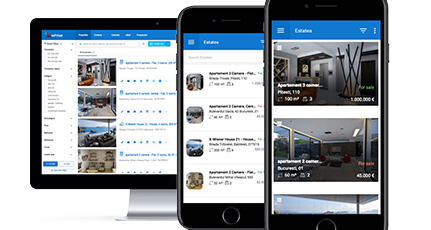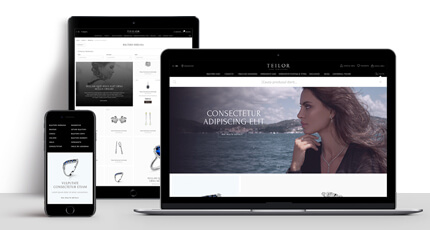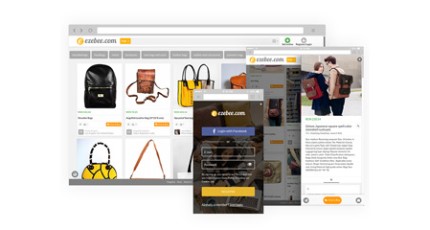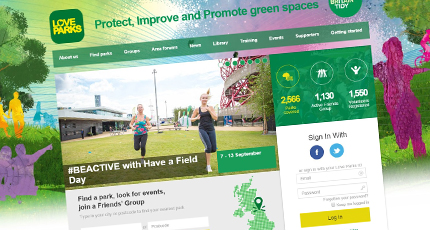Off-the-shelf vs custom-build CRM systems? Which one is right for your business?
Whether you work in automotive, real estate, retail, eCommerce, or any other industry, the use of a high-performance CRM system is an essential condition.
Check out in this article the main types of CRM systems, what have in common (and what don’t) off-the-shelf and custom-build CRMs, and 2 CRM examples (developed with our teams).
Types of CRM Software
Through its core-functionality perspective:
- Operational – software solutions focused on automating tasks and activities and simplifying communication (between employees, between sales department and clients, etc.);
- Collaborative – providing synchronization at different levels and for various channels (website, phone, email, social);
- Analytical – able to transform raw data/data from disparate sources into valuable insights that can be used for improving processes or making business decisions.
Through development perspective:
- off-the-shelf solutions (digital products that can be sold to different companies)
- custom solutions (developed from scratch for a specific organization)
What is the difference between custom and off-the-shelf CRM?
While custom CRM solutions are built with the company’s needs in mind, off-the-shelf solutions integrate features that address general challenges that organizations usually deal with on a daily basis. This is the core differentiator between these two types of software.
But not the only one.
For comparing customs with off-the-shelves is essential to take, also, other criteria into account:
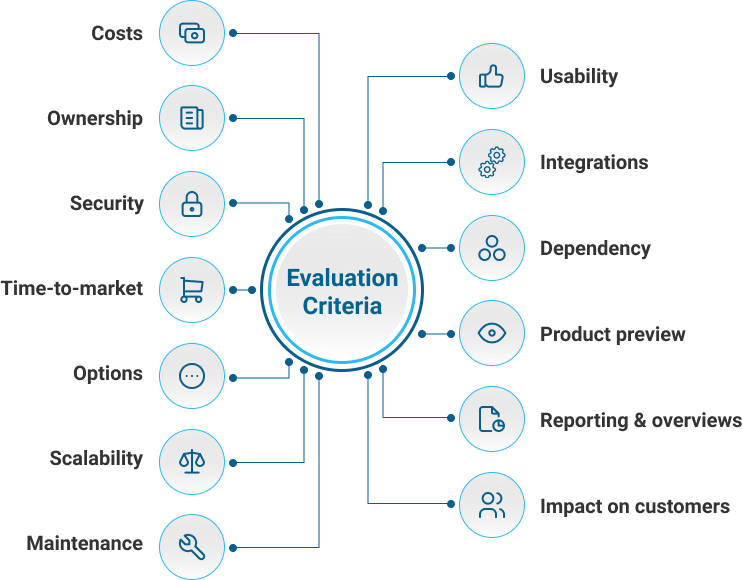
Off-the-shelf CRM systems
Because I mentioned a set of criteria above, let’s analyze off-the-shelf CRM solutions through their magnifying glass.
- costs – off-the-shelf solutions are much cheaper than custom software;
- ownership – the solution is bought as a regular product, so the ownership is transferred to the client-company. Note that the ownership is not the same thing as the intellectual property of the solution’s prototype. And this means that the same product can be sold to several companies (even to those who are in direct competition);
- security – IF the product is not developed by a reliable and experienced provider, off-the-shelf CRM solution may bring significant security risks. But, if the product is developed correctly, the solutions are safe and secure;
- time-to-market/development time – fast development/TTM (the CRM product will need only some branding optimizations);
- options – sometimes software has too many features (redundant features) and still needs some specific optimizations (that may be costly);
- scalability – less scalable than the custom ones;
- maintenance – optimizations or maintenance can be costly and take time;
- usability – easy to use and install;
- integrations – depends on the product but less flexible than custom solutions;
- dependency – higher customization costs/higher dependency on 3rd-party platforms;
- product preview – because the CRM solution is already developed, the client can get access to free trials and demos to test;
- reporting & overviews – predefined reports and real-time processing;
- impact on customers – fast access to features, fewer customizations.
Off-the-shelf CRM software example: CRM app as a part of a complete solution for online sales.
During the pandemic, restaurants experienced a higher need for migrating online. And for profitably doing that, they needed a complete solution able to provide sales tools, promotion features, communication functionalities, and customer relationship management in one.
So, we built a mini CRM system that centralizes all of the information that the customers agree to share:
- customer’s name;
- phone number;
- current order;
- order history;
- total order value since their first online purchase;
- days since their latest transaction;
- delivery address – which can be viewed in Google Maps;
- customer type: new, recurrent, loyal;
- email address;
- notes regarding the customer.
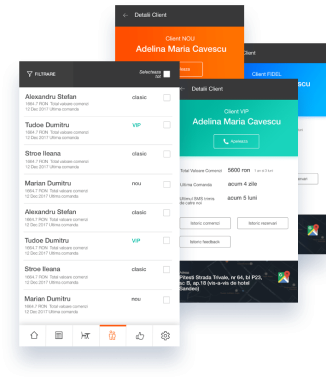
Mobile App (CRM based) functionalities
- the Mobile App automatically sends real-time notifications regarding new orders directly to the restaurant’s owner and employees – directly printed at the printer on your kitchen;
- you will get a faster synchronization of the restaurant’s activities and easier order management.
Automated identification of a customer
This functionality allows instant identification of an existing customer on the database by using the phone number (from which he calls).
- When a client calls the restaurant, his profile page is automatically displayed – name, phone number, recent orders, the total value of previous orders, etc.
- By using this functionality, you will be able to instantly identify the most relevant information on the client you are going to interact with. More than that, you can contact the clients directly from the app, or localize on Google Maps the delivery addresses.
Interested to test this CRM system and find out if it could be the right fit for your business?
Custom-build CRM systems
I’ll do the same thing with the custom CRMs as I did with the off-the-shelf ones above – analyzing them through the same criteria:
- costs – costly compared with off-the-shelf solutions;
- ownership – full-ownership once the solution is delivered;
- security – increased security;
- time-to-market/development time – depends on the CRM software complexity;
- options – unlimited options for extending the CRM solution (with new features and functionalities, new integrations, etc.);
- scalability – completely scalable for adding new features and functionalities based on your company’s needs and growth;
- maintenance – optimizations or maintenance can be made quickly;
- usability – being created with specific customers’ needs in mind, custom CRM software can provide higher usability and greater experiences;
- integrations – allow flexible integrations with 3rd-party platforms / solutions / apps;
- dependency – less dependency on 3rd-party platforms and higher flexibility;
- product preview – the provider can offer you access to mock-ups and prototypes for a basic preview;
- reporting & overviews – timely reports and real-time processing;
- impact on customers – they have access to custom experiences and increased UX.
Custom CRM software example: WHISE CRM (software development based on dedicated team model)
WHISE Software is a mobile-first solution built with real estate users’ main commercial and administrative tasks in mind.
This product’s goal is to provide a high-tech, and automated digital experience for buyers, owners, renters, investors, and real estate agents.
Benefits for the end-users:
- complete mobility – access to WHISE CRM on Android and iOS;
- dynamic connection between WHISE CRM and the agency’s website;
- option to have a mobile-responsive and SEO-optimised website developed by our team;
- increased online visibility able to generate more successful transactions;
- dedicated tools for enabling exclusive representation;
- constant access to notifications, emails, planning tools and follow-up.
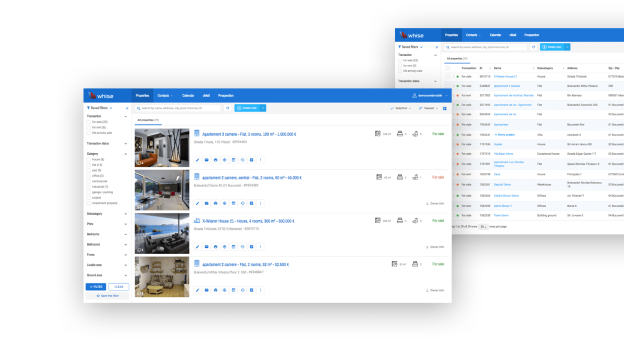
Our client requested constant optimizations to keep the product up-to-date and flexible enough to adapt fast to new market expansion.
As an overview of the product’s evolution, WHISE CRM has gone through three main stages of development:
Stage #1 – Building and launching the WHISE CRM software
In 2004 we built the company’s main product – a Customer Relationship Management software designed for the real estate sector. The software continued to improve through an ongoing development process. Together with the client, we discuss workflows, do the necessary planning, identify ways to improve processes and add valuable features.
Stage #2 – Replacing the desktop solution with a web-based & mobile-first one
The client needed to upgrade the application and have it built mobile-first (for both Android and iOS) in order to be able to access other markets outside of Belgium (e.g., Romania, France). At the same time, they needed to seamlessly migrate approximately 600 Belgian real estate companies in their existing user database into the new application.
Stage #3 – Migrating the solution from on-premise to cloud
Approaching new markets generated a greater need for scalability. And this was possible by migrating the solution from on-premise to cloud (Azure) – a more modern option that allows fast integrations and increased accessibility. Our team played a key role in this migration through consulting sessions and development services.
Technologies: ASP.NET Web API, Nancy FX, MSSQL, Elasticsearch, Memory cache, Redis, RabbitMQ, SignalR, PRTG, Quartz.NET, Azure DevOps, ReactJS
Need a dedicated team for developing a custom CRM for your company?
Get in touch with usWhy developing your CRM with Roweb
Roweb is a custom software development company, started in 2004 with offices in 4 major cities: Bucharest, Pitesti, Craiova, and Ramnicu Valcea.
With our 130+ IT professionals’ experience and the latest software development technologies, we focus on building Enterprise, Web, Mobile applications, and E-commerce solutions.
We work with companies from all over the world, and we understand the needs of and provide solutions for companies of all sizes ranging from start-ups to large enterprises.
“We are dedicated to staying ahead of the rapid changes by working with the latest technologies so that our clients would benefit from our technology expansion.
Our mission is to continually keep up with the innovations in the technological world so that the developed software does well in the market.”
Viorel Costea | CEO, Roweb Development
We have an in-house team of software professionals who manage end-to-end product development projects, from business analysis, consultancy, and architecture, to post-implementation testing and maintenance.
Custom solutions are our focus because we love to build tailor-made apps for our clients. Still, there are some off-the-shelf products that we’ve created recently based on specific industries’ needs:
- Marketplace for real estate;
- Complete solution for restaurants;
- E-learning products;
- Solutions for the Transport industry (fleet management apps, taxi app, etc.).
Some of them include CRM solutions (e.g., the restaurant solution).
Need support for developing a CRM solution? Book a free consultation session with one of our experts!

